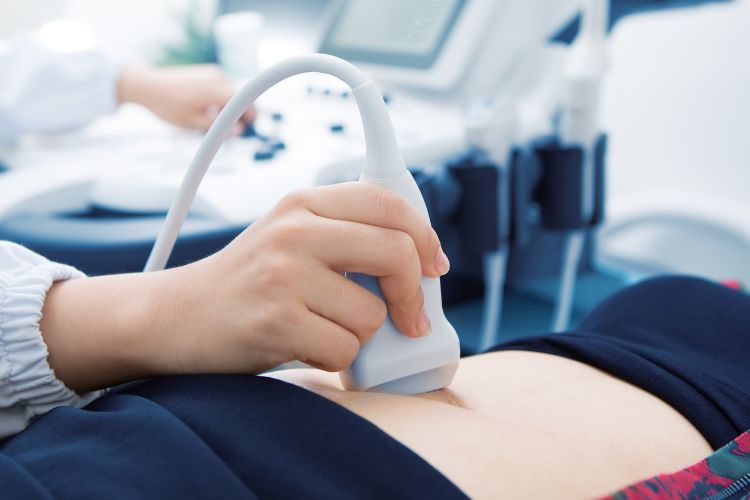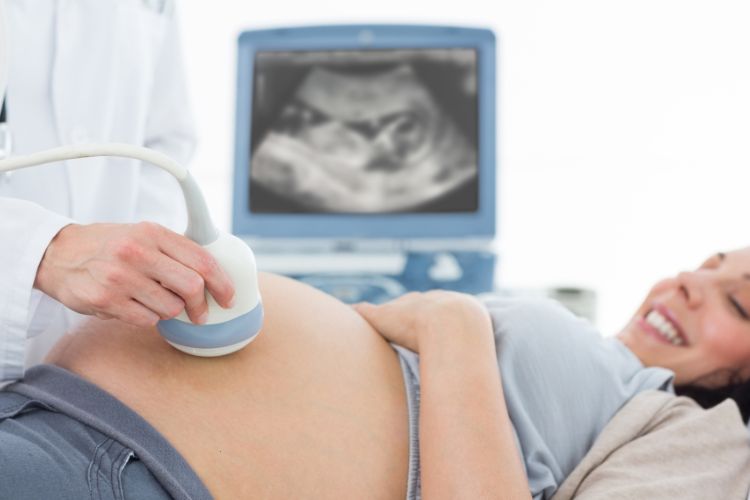
Dating Scan: Your Guide to Early Pregnancy Ultrasounds
If you’re an expecting parent and wondering what’s in store for those early pregnancy scans, then let us be among the first to congratulate you and tell you that you’ve come to the right place. Even if it’s not your first, there’s a good chance you’re feeling overwhelmed, and if that’s the case, then that’s okay.
It is completely normal to feel unsure about what the months ahead are going to bring, so let us help take a load off your mind by informing you here and now of everything you need to know about early pregnancy scans as you kick off your pregnancy journey.
What are Ultrasound Scans?
Ultrasound scans use soundwaves to create images of your growing baby and are generally easy.
Importantly, they do not use any of the needles or radioactive compounds found in other types of medical imaging, making ultrasounds 100% safe and completely painless for both mother and baby.
These images can help monitor your baby’s growth throughout gestation, providing information about the health of the baby, its gestational age, and even the sex of the baby (if you want to know, of course!)

What is a Nuchal Translucency Scan?
A nuchal translucency scan is performed between 11weeks 4 days, and 14 weeks and measures the amount of fluid behind your baby’s neck. It is used to determine the risk factor of your baby developing a chromosomal disorder, such as Down’s syndrome. This scan is optional, safe, and painless like any other ultrasound.
The Purpose of Ultrasound Scans in Early Pregnancy
The primary purpose of early (first trimester) ultrasounds is to assess the state of your pregnancy. First, the ultrasound can confirm you’re pregnant and then estimate your due date, giving you a complete timeline from which you can plan the next few months.
Secondly, an ultrasound can check for multiple pregnancies, as in the case of twins or triplets, and detect potential issues with the growing babies. Overall, ultrasound scans are a fantastic tool to monitor your growing baby’s development, providing expectant parents with peace of mind and exciting updates to share with friends and family.
What to Expect During an Ultrasound Scan
Ultrasound scans are performed by technicians called sonographers, who will scan you and the baby . The sonographer will talk you through the images shown on the screen. Ultrasound scans may take approximately 15–60 minutes, but to have an effective scan you will need to do some preparation.
Often, you will be asked to drink plenty of water and not empty your bladder before the scan. A good rule of thumb is to empty your bladder 90 minutes before your appointment, then drink 750ml of water over the next 60 minutes and hold it.
While this may be reasonably uncomfortable it is important, as the water (urine) in your bladder is incredibly effective at transmitting the ultrasound waves, helping to provide a much clearer picture.
Ultrasound scans can be performed in two ways: transabdominally and transvaginally. While the latter may be more uncomfortable, it can provide a clearer picture. Your sonographer will talk you through the options and methods used before you begin, and remember, everything is optional.
Whichever method is used, your first ultrasound will be the very first time you will be able to see your baby on screen, an exciting milestone for expecting parents.
Types of Ultrasound Scans in Early Pregnancy
There are a few types of ultrasounds to consider when embarking on your early pregnancy journey.
- Dating scan: This first scan is usually performed at 7–10 weeks and is used to provide your estimated due date, as well as check for twins or triplets.
- Nuchal translucency scan: Between 11weeks 4 days, and 14 weeks, this scan checks the anatomy and structure of the baby, also the baby’s neck for signs of chromosomal disorders like Down syndrome.
- First-trimester ultrasound: A particularly important scan, performed within 12 – 14 weeks to assess the structure and size of the baby.
- Transvaginal ultrasound: No strict date, but may be used in early pregnancy, and throughout pregnancy to gain clearer images than a transabdominal scan.
Preparing for an Ultrasound Scan
Preparing for an ultrasound scan is simple and straightforward and should be easy. It is best to wear loose, comfortable clothing that provides easy access to your abdomen/lower belly, as well as clothing you don’t mind risking getting ultrasound gel on.
As mentioned, sometimes your healthcare provider will also ask that you drink enough water to fill your bladder and that you do not urinate until after the scan.
Understanding Your Ultrasound Results
Your sonographer will be able to explain to you what you’re seeing on the screen, providing some information on the growth and development of your baby. However, more detailed results, including any abnormalities or growth restrictions, will be left to discuss with your healthcare provider, who will be able to answer any questions you might have.

What if I Have an Uncertain Result?
If a scan is inconclusive or more information is needed, a repeat ultrasound in 1–2 weeks may be requested. However, this is just a guide, and your healthcare provider will be able to tell you when the best time is to repeat the scan.
Cost and Accessibility of Ultrasound Scans
This depends on where you go for your scans. Medicare may cover some of the costs. Depending on whether you opt for public or private healthcare. You can discuss your options and any out-of-pocket costs with your doctor before you go for your scan.
Frequently Asked Questions
What is the purpose of the ultrasound scan?
To assess the development, health, and viability of your baby in the early stages of pregnancy.
What can I expect during the scan?
You can expect a calm and relaxed 15–60 minutes while your sonographer shows you your baby in the early stages of its development.
What are the risks and benefits of the scan?
There are virtually zero risks to an ultrasound scan. No injections and no radioactive compounds are required, just harmless high-frequency soundwaves. The benefits are finding out your due date, checking the health and development of your baby, and determining if there are any abnormalities early.
What are the alternatives to ultrasound scans (e.g. blood tests)?
Although blood tests and urine tests can be used to confirm pregnancy and test for developmental disorders, an ultrasound does provide essential information. However, these tests are often used in conjunction with scans.
Is dating scan the same as early pregnancy scan?
Yes, a dating scan is a type of early pregnancy scan. It is typically the first ultrasound performed during pregnancy and is used to confirm your due date and assess the viability of the foetus. It can also help identify multiple pregnancies, such as twins or triplets.
How early should you get a dating scan?
Usually between 7 and 11 weeks, but certainly before 12 weeks.
Next Steps After the Ultrasound Scan
Once you have completed your ultrasound, your results will be sent to your doctor for review. You will have a follow-up appointment to discuss the results and you will also be able to ask any questions.
Your healthcare provider will determine whether you need to book in for a follow-up scan for further testing or monitoring and be able to provide you with the next steps to take for prenatal care.
If you’re just starting your pregnancy journey, then let us wish you congratulations once again, and encourage you to book your first ultrasound scans with the professional obstetrics team at PRP Diagnostic Imaging. Our friendly sonographers are ready and waiting to welcome you and guide you through your early pregnancy, so contact our team today to get started on your prenatal screening.
